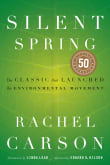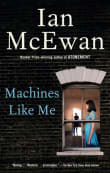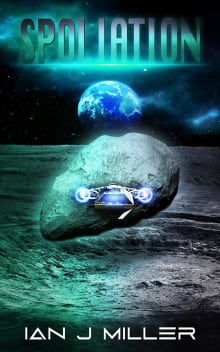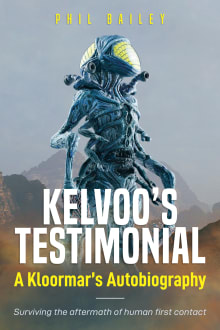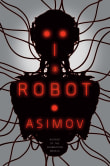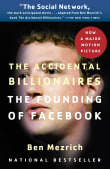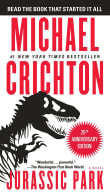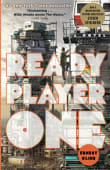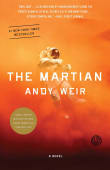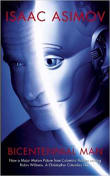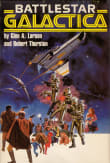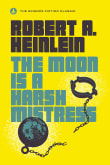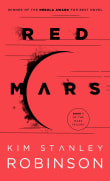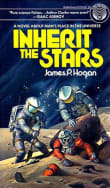2001
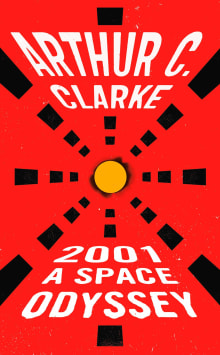
Book description
Written when landing on the moon was still a dream, and made into one of the most influential films of all time, 2001: A SPACE ODYSSEY remains a classic work of science fiction fifty years after its original publication.
The discovery of a black monolith on the moon leads to…
Why read it?
8 authors picked 2001 as one of their favorite books. Why do they recommend it?

The classic of classics, 2001: A Space Odyssey, offers a setting that could well be a reality in just a few years. The story begins long ago when alien intelligence leaves a marker for the apes that inhabit the Earth. The only problem is this marker is on the moon. But when humans are finally smart enough to discover it, it sends a signal to Jupiter. One of the inferences in the sequels to 2001 is that the alien intelligence itself is artificial—the product of a race that has delegated control and development of the galaxy to machines.
To…
From Jan's list on prescient scifi about artificial intelligence.

This book seems a bit strange at first, when the story begins with Moon-Watcher, the leader of a tribe of early ape-man, who struggles for survival during the brutal Pleistocene ice age. After an alien monolith appears, it seems to advance the way he thinks, leading him to develop crude weapons. When the same monolith is discovered in the future, we seem fated to find the answers behind the eerie structure. Skipping to a team of astronauts who travel aboard a ship to further investigate, things take an unexpected turn when the ship’s A.I. called HAL-9000, gets very confused about…
From K.'s list on science fiction with A.I. and sweeping new worlds.

What if an alien race shepherded humans from hunter-gatherers to space farers? What would be the next step in that process? While speculating on those questions, Clarke gives us a realistic vision of human habitation in Earth orbit, on the moon, and a voyage to Saturn managed by an artificial intelligence. In the background of the novel, tensions build between the United States and Russia. I first read the novel in the early 1980s as the Voyager mission visited Jupiter and Saturn and the Space Shuttle program got underway. At the time, this felt like a tale that could happen.…
From David's list on humans taking the next big step into space.
If you love 2001...

Obviously we have passed 2001 chronologically, but unfortunately we haven't reached the levels of technology depicted in this novel. Part of 2001: A Space Odyssey takes place on the Moon, where it introduces a large, well-established lunar base at Tycho (that I alluded to in my own novel). The mysterious alien monolith nearby pushes the action beyond Luna and toward the outer planets aboard the spaceship Discovery, which I consider still to be one of the best-designed spacecraft ever. Clarke wrote the novel while Stanley Kubrick was making the 1968 film, but expanded the story to take the action…
From Gray's list on near-future, near-space.

HAL (cool name) was built to run all the functions of the spaceship and support the crew on its voyage to Jupiter in this classic movie/book. I love the one, his one apparently bloodshot eye has become iconic. His calm voice, ability at chess, and omnipotence on the ship could not overcome the conflict handed down from his creators. I felt sorry for him as he battled his mental illness, suffering the end that many people with mental illness do.
From Peter's list on where we expect AI to behave as our tool, but.

This book is about space exploration and how computers will be a big part of our lives. There are not too many sci-fi novels about monolith and artificial intelligence (AI) together. The novelist Arthur C. Clarke helped Stanley Kubrick with the screenplay which became a movie. All so I like HAL the AI computer on board. The author was way ahead of his time. On trusting HAL (AI) computer insight over human thoughts. In 2022 we're doing this more, trusting with space exploration.
From Bryant's list on sci-fi movies based on books.
If you love Arthur C. Clarke...

Written in conjunction with the screenplay for Stanley Kubrick’s masterful 1968 film, this sci-fi novel is breathtaking in its scope—moving from humanity’s history to its future, from the discovery of hand tools on the ancient African savannah to the launch of artificial intelligence into space. Arthur C. Clarke, in his year 2000 audio introduction, emphasizes how he set out to create a powerful story that would not go obsolete once humans do set off on space missions. He hit that mark, as both the film and the novel are enduring classics that perpetually serve up an urgent message: do not…
From Evan's list on cautionary tales about world-changing technology.

It took me many years after seeing the 1968 film 2001: A Space Odyssey to finally read the book. At last, I learned why “Hal,” the cordial, polite, and deadly AI of the film went rogue and killed all but one of the travelers on the spaceship heading to one of Saturn’s moons (Jupiter’s moon in the film). Hal and his voice are by far the signature and most unforgettable aspects of the film and ones that live on as cultural memes for AIs who defy human control.
The novel was written simultaneously with the film (Arthur C. Clarke co-wrote…
From Casey's list on artificial intelligence science fiction.
If you love 2001...
Want books like 2001?
Our community of 12,000+ authors has personally recommended 100 books like 2001.





